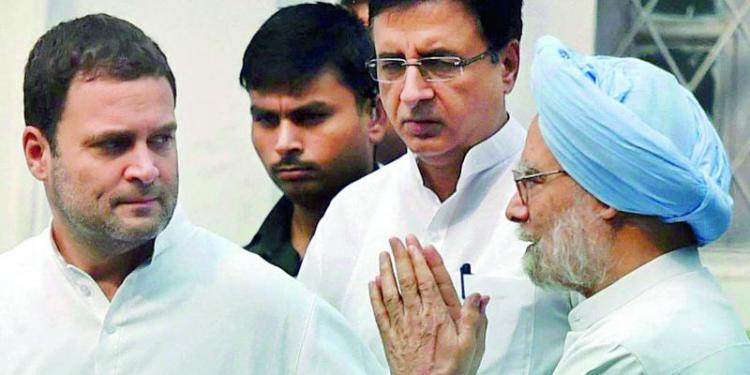During the four years of Modi government, the economy has underwent many significant changes. Demonetisation has led to many positive changes in the economy for example, tax compliance has increased and digital transactions have kept the corruption away. The complete overhaul is underway with the restructuring of old institutions in order to boost the economy on par with the world economy. These structural changes are bound to happen for the macroeconomic stability in the economy. Goods and Services Tax is a fine example in the restructuring process which is benefiting the economy. The recent tussle between the RBI and government has sparked a new row about the importance of the autonomy of RBI.
The former RBI governor and finance minister Dr. Manmohan Singh has stated, “If FM insists, I don’t see that the governor can refuse, unless he’s willing to give up his job,” clearly acknowledging the superiority of the FM over RBI governor. In view of Manmohan Singh, if the finance minister insists on any issue, his view must prevail and RBI has to take care of this.
The bone of contention here is section 7 of RBI act which gives the central government the power to direct policies to Reserve bank of India in public interest. The finance ministry in an unprecedented move is going to invoke section 7 to handle the adverse situation of cash crunch in the economy. Former finance minister P Chidambaram accused the government and warned that this “will irretrievably damage the credibility and reputation” of the regulator. The Congress party had accused the Modi government about the current situation of the economy. The Congress has yet again manifested its double standard. Congress is firing shots in the air without any goal and the party seems to be doing nothing than misleading the people by this foul cry. Section 7 of the RBI act is meant to be invoked when government senses the need of doing it and it totally comes under the prerogative of the government. Manmohan Singh who has served in almost all the top financial offices finds no reason for the RBI to go against government’s decision on any issue.
When rupee hit the mark of 73, opposition cried inflation and termed it as the worst of times for the economy. Congress went on to ignore the fact that the economy is being affected by global crisis majorly by American led policies due to which the Portfolio investment has gone down, drastically affecting the Sensex. The global oil prices went up after OPEC and other oil producing countries took measures to systematically cut down the oil production.
In the wake of these Global crises, the financial institution needs government intervention to remedy the situation. Money parked with the RBI is for the adverse conditions like the economy faces today. Why can’t the government use it? Why Congress is creating a false hoax that credibility and reputation will get damaged by government intervention? The money will enhance the much required liquidity for the banks and will give hope to the investors about the government’s stand in favour of the betterment of economy and people. RBI has not taken any measure step to comfort the economy. The government now is left with only option to enforce section 7 in order to avoid any setbacks to the economy. Moreover, the statement by Manmohan Singh bears prudence in the recent context of tensions between RBI and the finance ministry. If point of views are so diverging, the ministry must prevail over the central bank.
In the World Bank’s Ease of Doing Business rankings, India has improved under the leadership of Prime Minister Narendra Modi. India has climbed up to 54 places to 77th rank among 190 countries surveyed consecutively the second year since 2016. This shows that reforms have paid well in the favour of economy and has created a positive and viable environment for the new businesses and investors to invest. This World Bank report answers the remarks of former finance minister P. Chidambaram and it’s a huge setback for Congress’ electoral prospects.
The autonomy of RBI lies under the Centre government where the finance minister has to formulate a road-map according to the situation and then the RBI governor needs to assist in achieving the target. The deputy governor of RBI, Viral Acharya has undermined the rules by bringing the issue into public forum by raising questions on the autonomy of RBI. Keeping the personal differences aside, he should have given a thought to the credibility of the institution. He has said that RBI is more of a team which plays the Test match while the government plays Twenty-20. Mr Acharya was expected to have it resolved within the RBI board meetings itself rather than making it public.
The government has to make policy changes depending on the situation rather than being complacent like the RBI. The former RBI governor and chief economist from congress party Dr. Manmohan Singh has clearly stated the fact that RBI governor has to give heed to the advice of finance minister and take actions accordingly. On the other hand, the Congress party has completely lost the plot because Rahul Gandhi and P. Chidambaram, seems to refute their own economist’s stand.
























